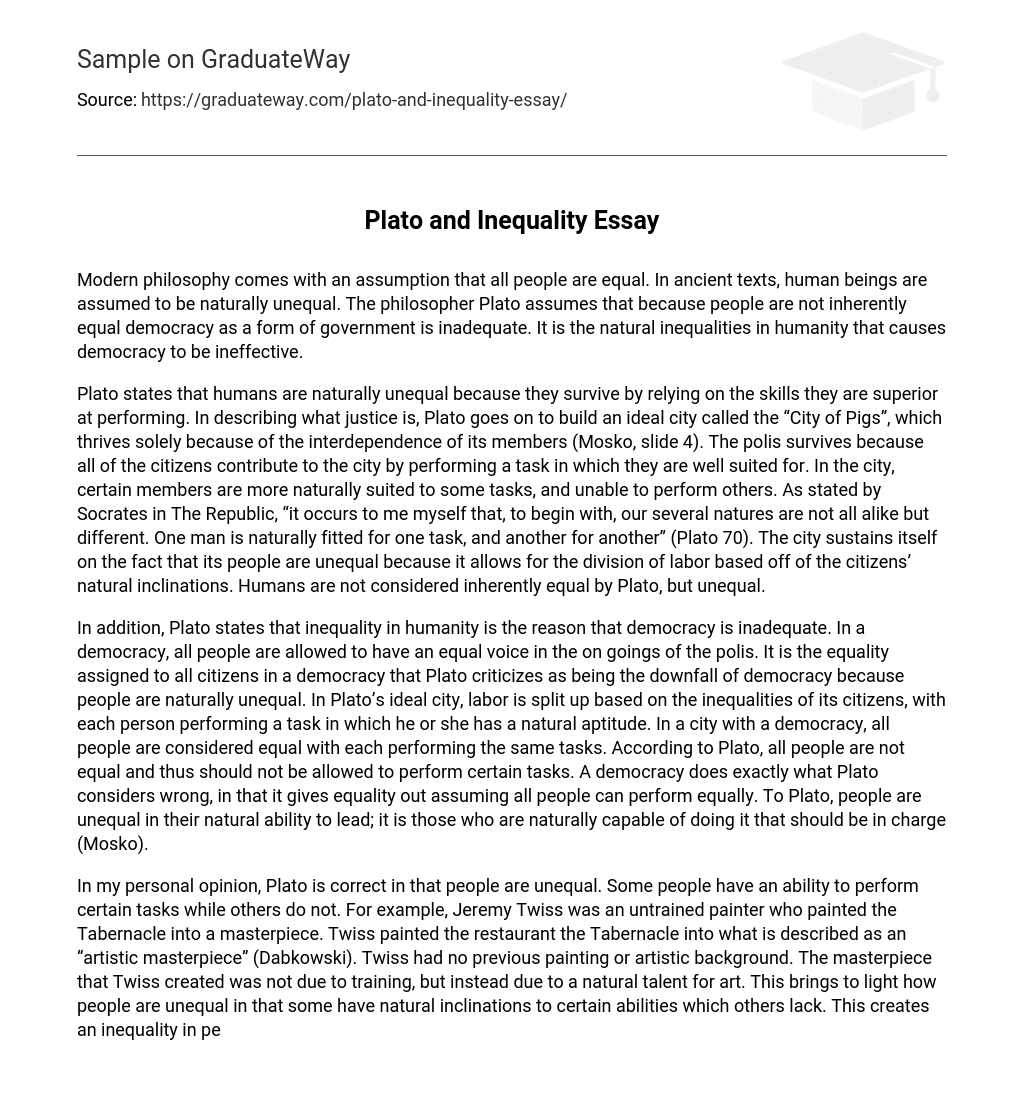Modern philosophy comes with an assumption that all people are equal. In ancient texts, human beings are assumed to be naturally unequal. The philosopher Plato assumes that because people are not inherently equal democracy as a form of government is inadequate. It is the natural inequalities in humanity that causes democracy to be ineffective.
Plato states that humans are naturally unequal because they survive by relying on the skills they are superior at performing. In describing what justice is, Plato goes on to build an ideal city called the “City of Pigs”, which thrives solely because of the interdependence of its members (Mosko, slide 4). The polis survives because all of the citizens contribute to the city by performing a task in which they are well suited for. In the city, certain members are more naturally suited to some tasks, and unable to perform others. As stated by Socrates in The Republic, “it occurs to me myself that, to begin with, our several natures are not all alike but different. One man is naturally fitted for one task, and another for another” (Plato 70). The city sustains itself on the fact that its people are unequal because it allows for the division of labor based off of the citizens’ natural inclinations. Humans are not considered inherently equal by Plato, but unequal.
In addition, Plato states that inequality in humanity is the reason that democracy is inadequate. In a democracy, all people are allowed to have an equal voice in the on goings of the polis. It is the equality assigned to all citizens in a democracy that Plato criticizes as being the downfall of democracy because people are naturally unequal. In Plato’s ideal city, labor is split up based on the inequalities of its citizens, with each person performing a task in which he or she has a natural aptitude. In a city with a democracy, all people are considered equal with each performing the same tasks. According to Plato, all people are not equal and thus should not be allowed to perform certain tasks. A democracy does exactly what Plato considers wrong, in that it gives equality out assuming all people can perform equally. To Plato, people are unequal in their natural ability to lead; it is those who are naturally capable of doing it that should be in charge (Mosko).
In my personal opinion, Plato is correct in that people are unequal. Some people have an ability to perform certain tasks while others do not. For example, Jeremy Twiss was an untrained painter who painted the Tabernacle into a masterpiece. Twiss painted the restaurant the Tabernacle into what is described as an “artistic masterpiece” (Dabkowski). Twiss had no previous painting or artistic background. The masterpiece that Twiss created was not due to training, but instead due to a natural talent for art. This brings to light how people are unequal in that some have natural inclinations to certain abilities which others lack. This creates an inequality in people with some predisposed for some abilities while others are not. However, I do believe that all people should not be forced into performing certain work because they are talented in it. I think all people have the right to follow do whatever they desire, even if they are not naturally talented in it.
To ancient philosophers, such as Plato, inequality between people was the natural assumption of the time. It is due to the inequalities which people have that forms of government like democracy cannot function because they prescribe equality to all when all people are not inherently equal.





